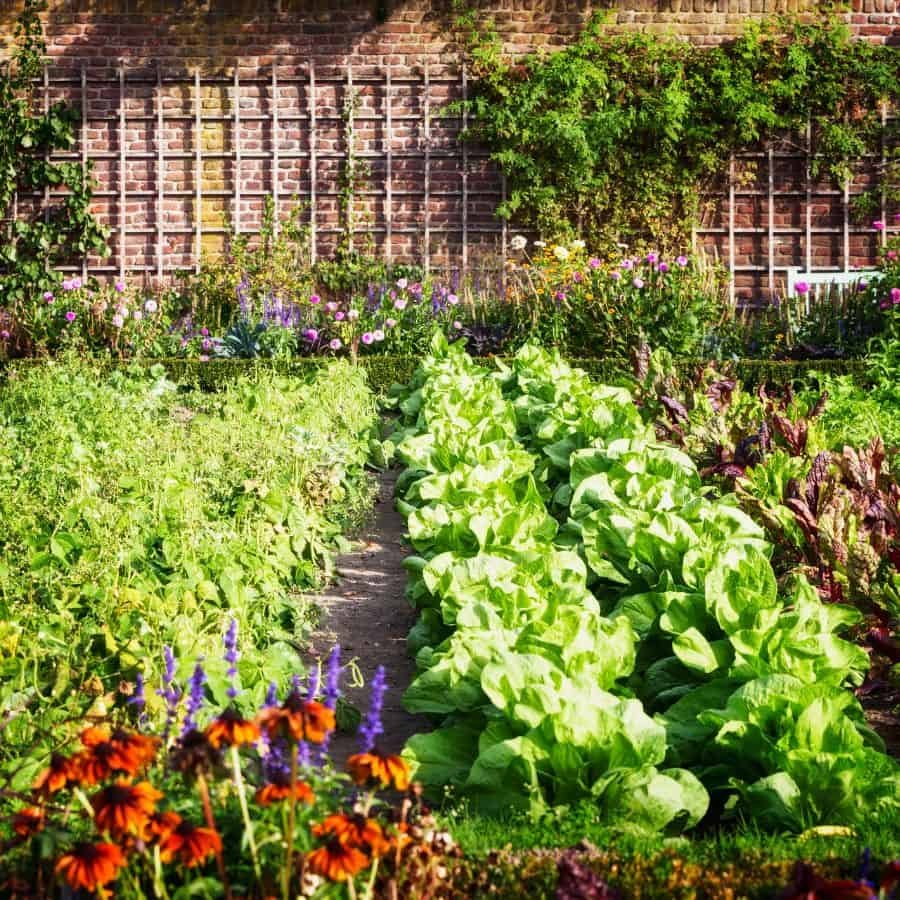Have you ever placed tomatoes beside cabbage and watched both fail? Or seen your carrots look weak even though you cared for them?
The truth many gardeners never hear is that veggies have good partners and troublemakers.
I spent hours looking for a simple companion planting guide for raised beds and found nothing. So I made this easy-to-keep pairing list.
Plant Partners That Help Your Garden Grow
Your raised bed works like a small community. Some plants are kind and helpful, and others make things harder.

Pairing the right plants can turn a basic bed into a strong, productive garden instead of a disappointing mess.
Companion planting can raise yields by up to 25%. That’s almost like getting one extra plant for every four you grow.
Tomato Partners (And the Ones They Avoid)
Tomatoes go well with many veggies, but they don’t get along with everyone. If you want better flavor and more fruit, grow them with:
- Basil ❤️ Tomatoes: Not only good in meals, basil helps with flavor and pushes away flies and mosquitoes
- Carrots: Carrots help loosen the soil, while tomatoes offer shade
- Onions & Garlic: Strong-smelling protectors that help fight off tomato pests
But watch out. Tomatoes should not be near corn, potatoes, fennel, or cabbage. These mixes can stress tomatoes and slow their growth.
The Carrot Team: Friends That Help Each Other
Carrots live underground, but they still need the right neighbors. They grow best with:
- Peas ❤️ Carrots: Peas put nitrogen in the soil, and carrots make good use of it
- Lettuce: Gives shade to carrot tops and uses the soil differently
- Rosemary & Sage: These herbs help keep pests away
But keep dill and parsnip away. They fight over similar needs, making growth harder.
Onion Partners: Better Beds Together
Onions get along with many plants. They help keep things balanced:
- Carrots ❤️ Onions: They protect each other from pests
- Lettuce: Works well because roots grow at different levels
- Strawberries: Onions help protect the fruit from pests
But onions don’t grow well with peas and beans. Sometimes the best move in the garden is keeping certain plants apart.
Garlic Helpers: Your Strong Bed Protectors
Garlic offers protection to many garden plants:
- Tomatoes ❤️ Garlic; A trusted pairing that helps both plants
- Cucumbers: Garlic helps lower fungal issues
- Carrots & Celery; They grow better with garlic, keeping pests away
But beans and peas should not be near garlic. They don’t get along, and each one struggles.
Why These Matches Work
Companion planting is not just old talk. There is real science behind it. Some plants release helpful chemicals. Others pull in helpful insects or chase away pests.
Think of your garden as a team with different roles. Some plants protect, others add nutrients, and others attract pollinators.

Spacing is not the whole story in raised beds. Your vegetables are reacting to their neighbors in ways you can’t see, and the right mix makes a big difference.
Your Raised Bed Action Plan
Ready to play garden matchmaker? Here’s how to use this knowledge:
- Before planting, map out your raised bed on paper
- List what vegetables you want to grow
- Check the companion chart to see who gets along
- Arrange your plant buddies together and keep enemies apart
- Watch your garden transform into a thriving community!
Most people make this mistake with their raised beds: they focus solely on sun, water, and soil while ignoring plant relationships. But now you know better! Your vibrant, productive garden will be the envy of the neighborhood.
Save this guide now. Your future self (and your vegetables) will thank you!

